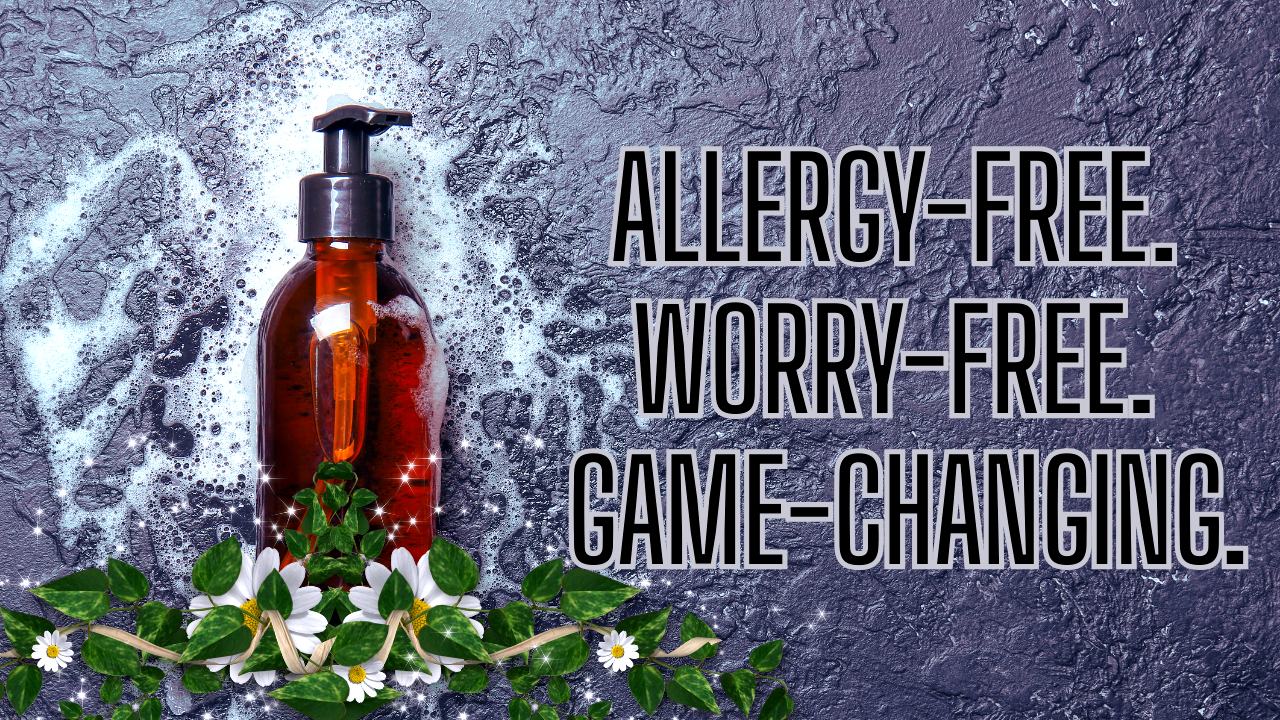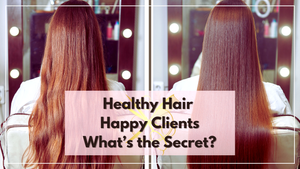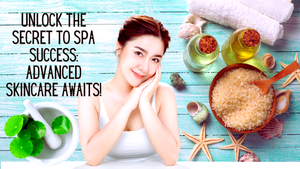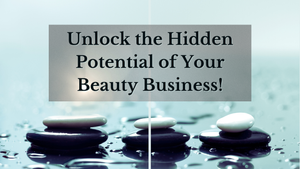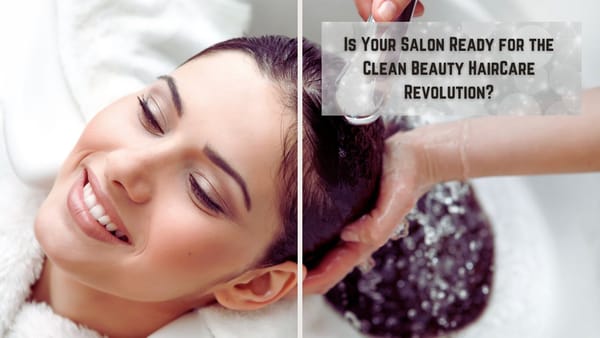The Clean Beauty Boom and Why Salons Must Catch Up
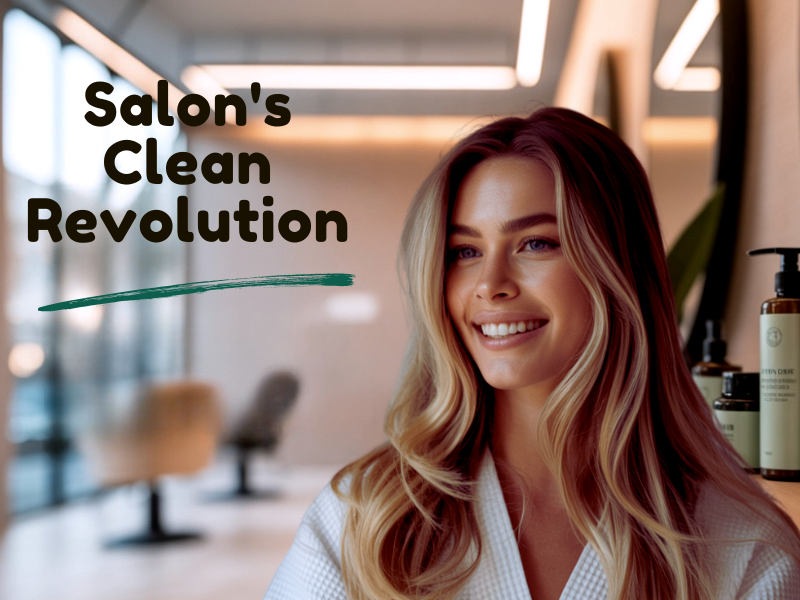
Imagine this: a client walks into your salon hoping for a transformation, but leaves with a red, itchy scalp or hair that feels worse than when they arrived. Sound familiar? You’re not alone—and it's not your skills. The hidden allergens in the products trusted by the industry for years.
Today’s clients are more informed and ingredient-savvy than ever before. They read labels. And they want their beauty experience to be as clean and safe as it is luxurious. If your salon isn’t offering allergen-free haircare yet, you could miss out on the biggest opportunity in the beauty industry.
The Silent Epidemic: Haircare Allergies Clients Rarely Talk About
Many clients don’t even realize that their flaky scalp or chronic breakouts are tied to their haircare routine. They silently suffer, blaming hormones, weather, or stress, when the real culprit is the shampoo or styling product used during their appointment.
As a salon owner, this is your golden opportunity to become their trusted solution. By introducing allergen-free haircare options, you’re not only solving a problem, but they’ll feel seen, heard, and safe in your hands. That emotional connection is the foundation of lifelong loyalty.
How Switching to Allergen-Free Products Can Instantly Differentiate Your Salon
Let’s be honest: it’s hard to stand out in a city full of salons. Price wars don’t build loyalty. Discounts attract deal seekers. But offering safe, clean, allergen-free services builds real trust, and trust is what clients pay for again and again.
By using allergen-free products, you're not just offering a service; you're delivering peace of mind. This positions your salon as forward-thinking, client-focused, and truly different from the competition. That’s not a gimmick—it’s a brand advantage.
The Business Case for Clean Haircare: Profits Meet Purpose
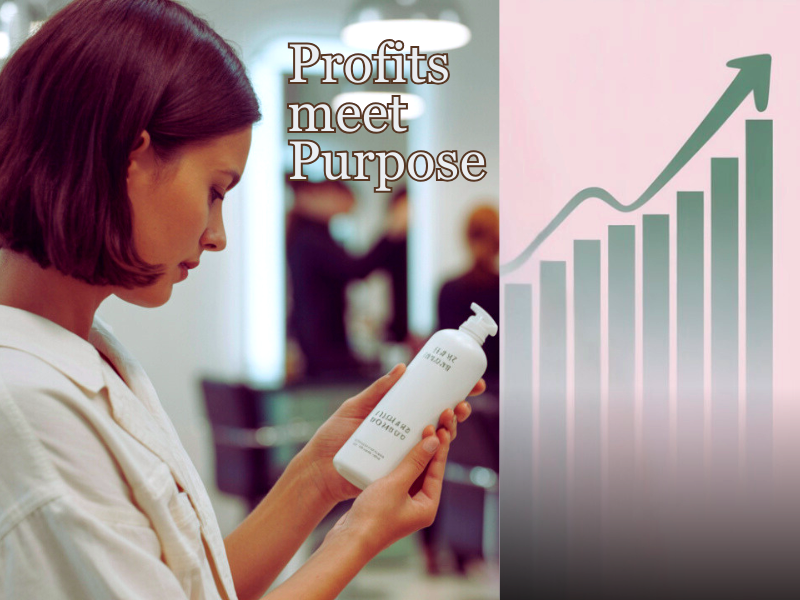
Clients aren’t just buying a haircut anymore—they’re buying into your values. They want to support businesses that care about wellness, the environment, and transparency. Offering clean, allergen-free haircare shows them you’re in tune with what matters.
And here’s the best part: allergen-free products often carry a higher perceived value. Clients are willing to pay more for peace of mind. That means better margins for you, without needing to upsell or hustle. Purpose and profit? Yes, please.
What Counts as “Allergen-Free” in Professional Haircare?
“Allergen-free” doesn’t mean ingredient-free. It means free from common triggers like synthetic fragrances, parabens, sulfates, and formaldehyde-releasing preservatives. It means products formulated with integrity and tested for safety, not just scent and style.
It also means being transparent. Sharing what’s not in your products builds credibility. When clients know you’ve made their health a priority, they don’t just book again—they tell everyone they know.
Top 10 Ingredients to Watch Out for in Traditional Haircare
Many everyday haircare products—even those labeled “professional”—contain hidden irritants. These common ingredients can trigger allergies, scalp irritation, and long-term damage. If you're a salon owner, knowing what to avoid is the first step toward offering safer, client-trusted solutions.
🚫 The Top 10 Haircare Allergens to Avoid:
- Synthetic Fragrance – A major trigger for allergic reactions and hidden chemicals.
- Parabens – Preservatives linked to hormone disruption.
- SLS/SLES (Sodium Lauryl/Laureth Sulfate) – Harsh detergents that strip natural oils and irritate skin.
- Formaldehyde Releasers (e.g., DMDM Hydantoin) – Can cause scalp sensitivity and are potential carcinogens.
- Methylisothiazolinone (MIT) – A preservative known for triggering contact dermatitis.
- Phenoxyethanol – Commonly used as a preservative, but can irritate the eyes and skin.
- Cocamide DEA – A foaming agent that may cause allergic reactions and is banned in some places.
- Benzyl Alcohol – A naturally occurring alcohol that can still irritate sensitive scalps.
- PEGs (Polyethylene Glycols) – May be contaminated with toxic impurities like ethylene oxide.
- Artificial Dyes – Synthetic colors that can cause allergic responses, especially in sensitive clients.
Why Today’s Clients Are Searching for Allergy-Friendly Solutions
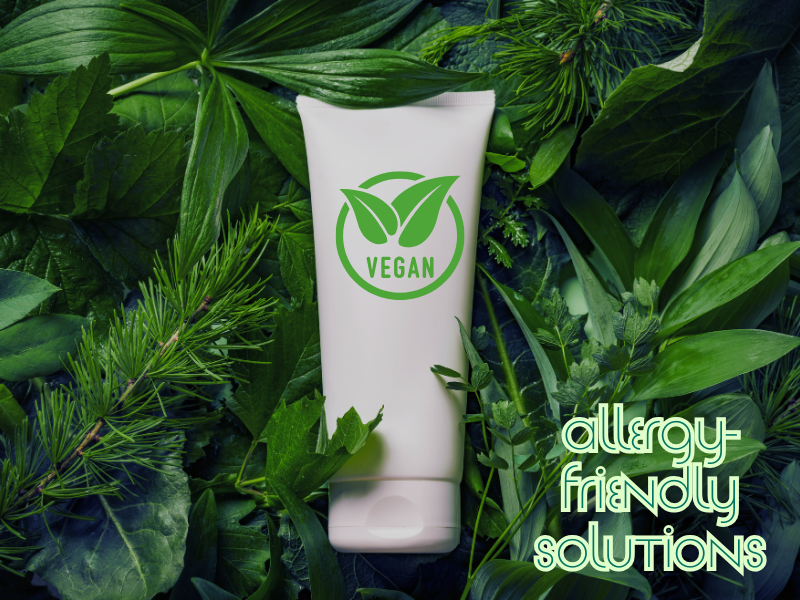
Consumers are waking up. They’re tired of guessing which product triggered their latest breakout or scalp irritation. More than ever, people are paying attention to what’s in their haircare, seeking out simple, effective solutions that don’t compromise their health. They want transparency, gentler ingredients, and formulas that respect sensitive skin and scalps.
If your salon is the one offering relief products free from harsh chemicals, synthetic fragrances, and known irritants, you’re not just solving a problem. You’re building trust. And when clients feel safe in your chair, they return, stay loyal, and become your best word-of-mouth advocates.
The Psychology of Sensitive Clients and What Builds Their Loyalty
Sensitive clients aren’t just picky—they’re cautious. Many have tried dozens of products, only to feel disappointed or hurt. When you step in with genuine care and safe alternatives, the emotional relief is immense.
They remember how you made them feel. They remember the comfort. That emotional connection turns into raving reviews, referrals, and long-term loyalty. All from simply removing the thing that hurt them in the first place.
Creating an Allergen-Free Salon Experience from Entry to Exit
Go beyond just shampoo swaps. Consider the full sensory experience: fragrance-free diffusers, non-toxic cleaning products, and gentle towels and capes. Make your salon a haven, not just a place for a cut.
Post signage that says you offer allergen-free solutions. Create a section of your menu that highlights “clean care.” Every detail adds up to an unforgettable, trust-building client experience.
Smart Ways to Position Allergen-Free Services on Your Menu

Don’t bury it under “add-ons.” Make it front and center. Use words like clean, safe, sensitive-skin-friendly, and fragrance-free options available.
Create named packages like “The Sensitive Scalp Soother” or “Pure Strength Treatment.” These give your services personality and clarity—two things that sell better than vague menu items ever could.
How to Talk About Allergen-Free Products So Clients Listen
Skip the science jargon. Clients want to know what it means for them. Say things like, “This formula helps prevent itching or flaking,” or “You’ll leave feeling clean, not coated.”
Use testimonials. Share client wins. “Since I switched to this product line, I’ve had no more scalp reactions.” That real talk goes much further than listing ingredients no one can pronounce.
Turning Hair Challenges into Business Opportunities
Every complaint is a hidden opportunity. If someone says “my scalp feels dry” or “my hair always gets oily fast,” introduce a gentle detox with allergen-free products. You’ll blow their mind.
And when they see results? You’re not just their stylist—you’re their haircare hero. That’s how great businesses grow: by solving real problems, gently and effectively.
Client Stories: The Emotional Power of Solving Hair Sensitivity
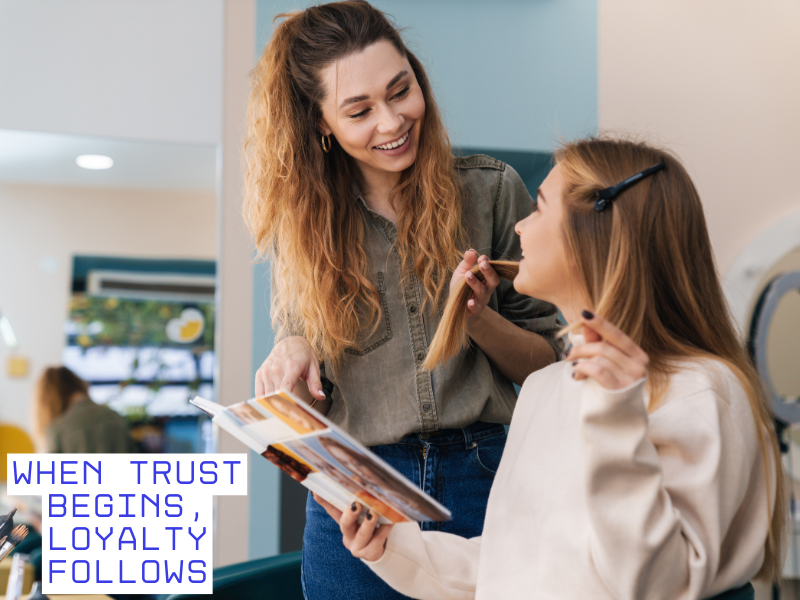
Picture this: a new client walks in with a list of everything they can’t use. They’re nervous. They’ve been burned before. But you listen, care, and offer a clean, safe alternative.
They leave with calm skin, beautiful hair, and tears of relief. That’s not just a win—it’s a story they’ll tell. You don’t just earn a customer—you gain an advocate.
Retail Strategies for Allergen-Free Shampoos, Masks, and Serums
Don’t just stock them—explain them. Create small signage that says “great for sensitive scalps” or “no parabens, no perfume.” People buy when they understand.
Bundle options help too: “Sensitive Care Starter Kit” or “Fragrance-Free Scalp Reset.” These guides clients to commit to clean care both in the salon and at home.
Staff Training: How to Confidently Recommend Safe Haircare
Your team is your front line. Train them not just on ingredients, but on how to spot signs of sensitivity and offer compassionate solutions. Scripts help!
Practice scenarios like, “Have you had any scalp sensitivities in the past?” or “Would you like to try our fragrance-free option today?” Confidence builds client comfort and credibility.
FAQs
Is allergen-free the same as hypoallergenic?
Not exactly. Hypoallergenic means fewer allergens, while allergen-free specifically avoids known triggers. Look for ingredient transparency.
Can allergen-free products still deliver great results?
Absolutely. Many allergen-free formulas are packed with plant-based actives that cleanse, hydrate, and protect just as well, if not better.
Are these products only for people with allergies?
No! They’re great for everyone, especially those looking to prevent long-term damage and irritation from harsh chemicals.
Will I need a separate product line to offer these services?
No, you can start small—maybe just a shampoo, conditioner, and treatment mask. Build as demand grows.
How do I market allergen-free without sounding negative or scary?
Focus on empowerment. Use phrases like “gentle yet effective” or “a safe space for sensitive clients.”
Final Thoughts on Tapping Into the Clean Beauty Goldmine
There’s a reason the clean beauty market is booming—it solves real problems with care, clarity, and compassion. And right now, one plant-based, dermatologically tested haircare system is gaining serious traction for doing exactly that. It features desert-grown ingredients known for surviving extreme stress, and it brings that same strength to your clients' hair and scalp.
Curious what’s making waves in salons around the world?
Discover the FDA-compliant, European-certified, and V-Label-approved allergen-free haircare system designed for sensitive clients and smart salon owners. Plant-powered. Profitable. Pure.
Want insider access? Sign up now or message me to learn more.
Because when clients feel safe in your chair, they stay loyal for life.
